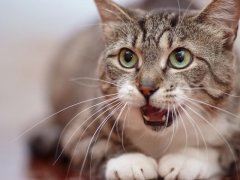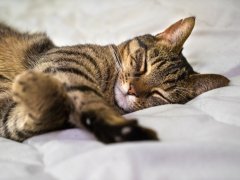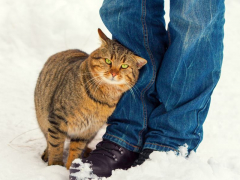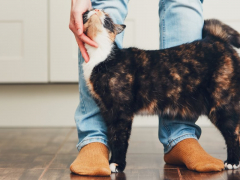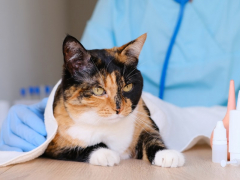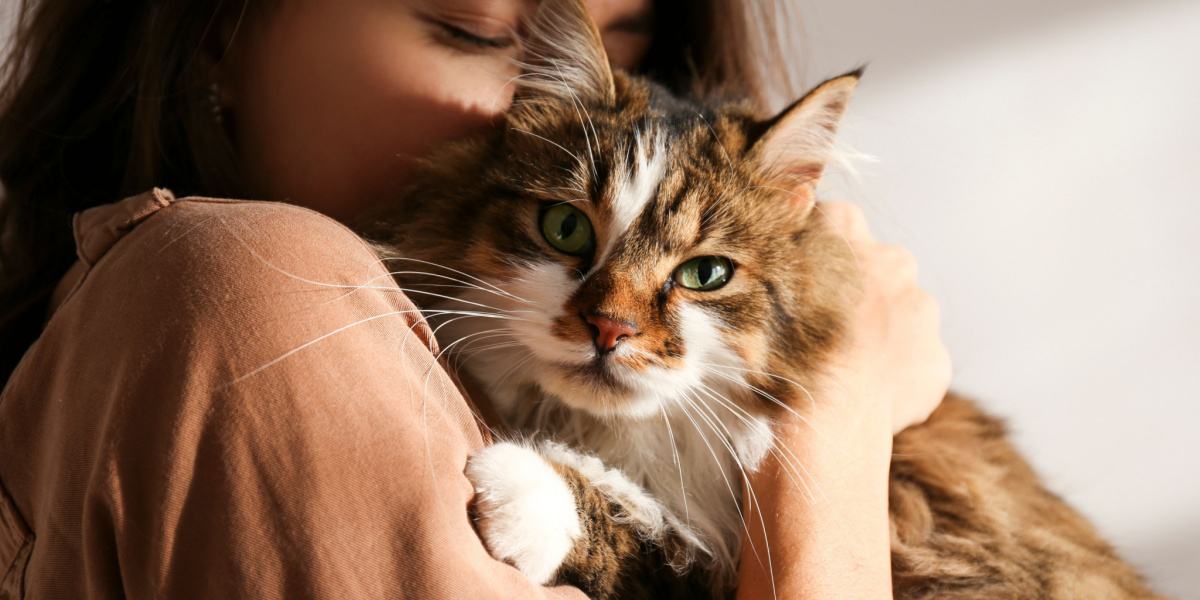
Memory is the facility of the brain to store information, and then retrieve it whenever it is needed. We use memory all the time: where we put our keys, what our childhood pet was called, what that co-worker’s partner is called, and the telephone number from a previous home, as some examples. Current information, past experiences, random bits of trivia—it’s all stored in the grey matter somewhere.
Cats possess both short-term and long-term memory capacity, and their memories will depend on the cats’ experiences, vital needs, and emotions. Cats tend to hold memories of things important to them, such as food, safety, and social interactions. Feline cognitive dysfunction, which is somewhat similar to Alzheimer’s in humans, can cause older cats to suffer from memory loss, including forgetting where the food bowls are, changed interactions with bonded companions, and changes to sleep-wake cycles.Key Takeaways
So, what about our cats? Do they have a memory as we do? My mischievous cats certainly seem to remember where the food bowl is and what time it should be filled! The field of animal cognition is constantly updating as we learn new and interesting facts about our domestic cats and other species.
Read on as we learn what information cats remember best (and why!), and how their memory differs from ours.
Types of Memory
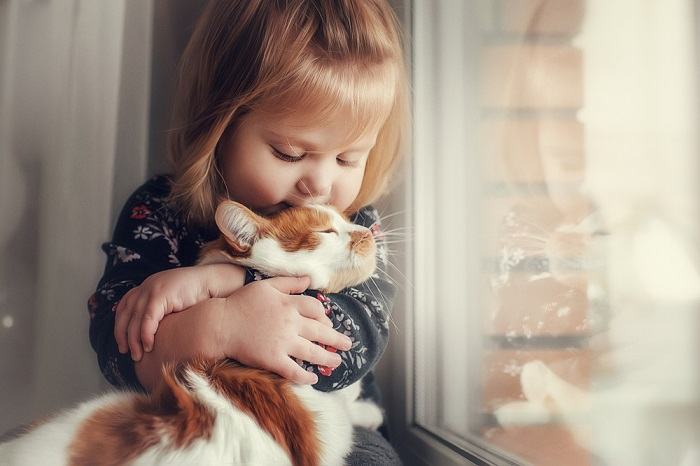
Cats use different types of memory, including short-term, long-term, sensory, and episodic.
Memory is a complex and mysterious faculty of our minds. Why can I remember the outfit I wore for my sixth birthday party, but I can’t remember the password for an online account that I just set up? There are different types of memory, requiring slightly different pathways in our brain to activate.
Short-term memory deals with the immediate happenings in our world: where I just put down my sweater, the price of my groceries that the cashier reads out to me. Also called “working memory,” this facility is constantly active, processing and using information. It only lasts a few seconds up to around a minute.
Sensory memory deals with data from our environment—what we see, hear, and touch. It is very fast, allowing an immediate understanding of our world as we experience it in real time, but rapidly decays.
Long-term memory can store large amounts of information for extensive periods of time. Short-term memory is mainly activated by the frontal lobe and parietal lobe of the brain. Long-term memory requires the hippocampus to “translate” the memory to a more stable process to be stored. These memories can be kept for years.
Episodic memory is a form of long-term memory whereby specific events can be remembered in detail, such as a wedding.
Also Read: How Long Do Cats Remember Other Cats?
1. Cats and Short-Term Memory
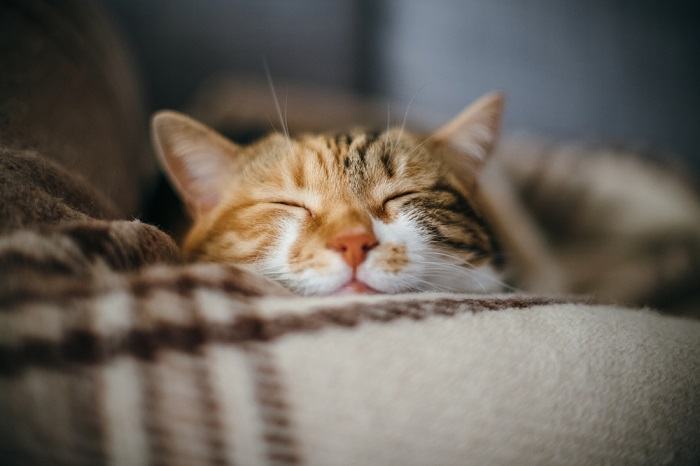
Research has shown that cats’ working memory seems to decline much faster than other domestic mammals.
Some interesting research has explored different types of memory in cats.
Cats’ short-term memory has been tested using a disappearing object study. The cats are shown an object, then taken away for a short period before returning. It found that cats do retain the ability to remember an object up to 60 seconds after it is hidden, although the cats’ accuracy got rapidly worse in the first 30 seconds.
It made no difference to them if there were clues placed around the objects, and their working memory seems to decline much faster than other domestic mammals such as dogs. This may be because cats rely highly on very rapid sensory memory, especially when hunting, analyzing their environment very quickly, and then moving on.
Some simple everyday actions require memory function. Walking, for example, involves short-term and sensory memory: humans typically look at objects on the ground one or two steps before they reach it, relying on their short-term memory to step over the obstacle even when no longer actively looking at it.
Cats also do this, as cats have been found to look a few steps in front of where they are walking. However, cats also develop long-term memories by visually assessing their environment.
Also Read: Do Cats Remember Being Abandoned?
2. Cats and Long-Term Memory
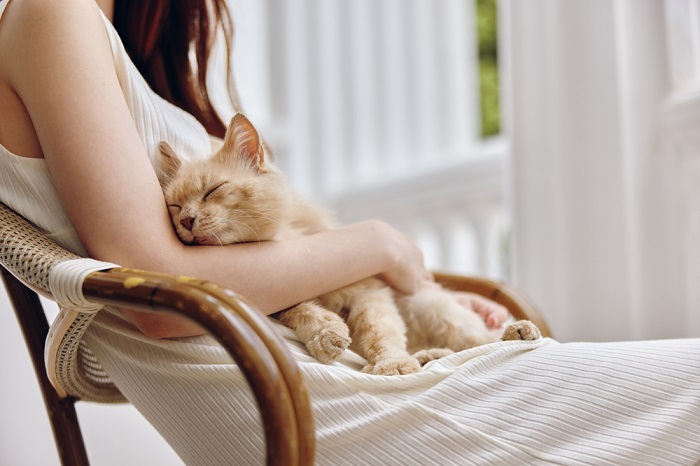
Cats recognize human faces less well than dogs, but direct and prolonged interaction with someone is more likely to lead to a lasting memory.
We can split the ways that cats use long-term memory into different categories:
- Spatial memory: This is how cats remember their environment. Cats are excellent at navigating obstacles and climbing effortlessly and skillfully. This type of memory is why cats remember where their food bowl is, or their favorite bed.
- Implicit memory: These memories appear to be learned instinctively, or through early interactions with littermates, and include hunting behaviors and grooming.
- Explicit memory: These memories are more intentionally recalled, such as remembering which family member they like to sleep with, the way home, or recognizing a rival feline.
- Visual memory: This is often poor in cats—they have been shown to recognize human faces less well than dogs, for example. However, direct and prolonged interaction with an object or being is more likely to lead to a lasting memory.
Studies have shown that cats have episodic memory and can remember both “what” and “where” when allowed to investigate food containers. There have been similar results in dogs, and it is thought that food is a powerful trigger for memory, as it is so vital for life.
Also Read: How To Make Your Cat Love You Even More [8 Ways]
What Triggers Cats’ Memories?
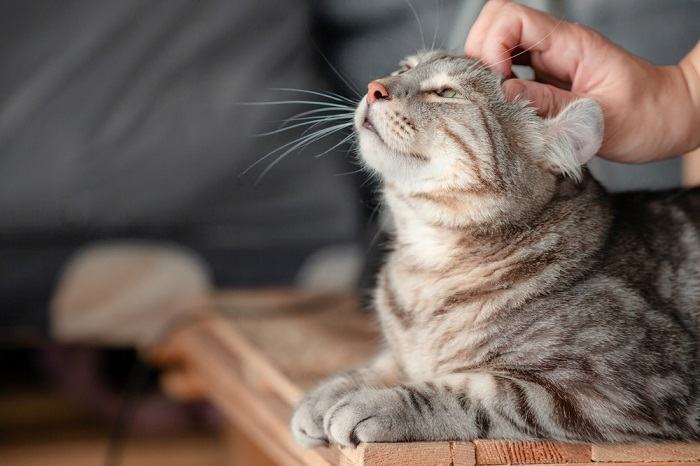
A cat’s long-term memory can lead them to hold grudges!
Memories in cats tend to be formed under two types of circumstances. First, a memory is more likely to be made if it is triggered by something highly significant or important to your cat. Food, water, toileting, hunting, sleep, play, and bonded companions are all really important to cats. This is why your cat remembers where their litter box is, the time and place that cat food appears, and how they recognize family members.
Second, memories can be triggered by emotions, such as fear or happiness. Your cat might form an association with a particular part of the garden if they had some negative experiences such as fights there with another cat.
A cat’s long-term memory can lead them to hold grudges! On a more positive note, your cat may wait by your favorite chair for you as they have had lovely lap snuggles there previously.
Also Read: Why Does My Cat Ignore Me?
Do Cats Suffer From Memory Loss?
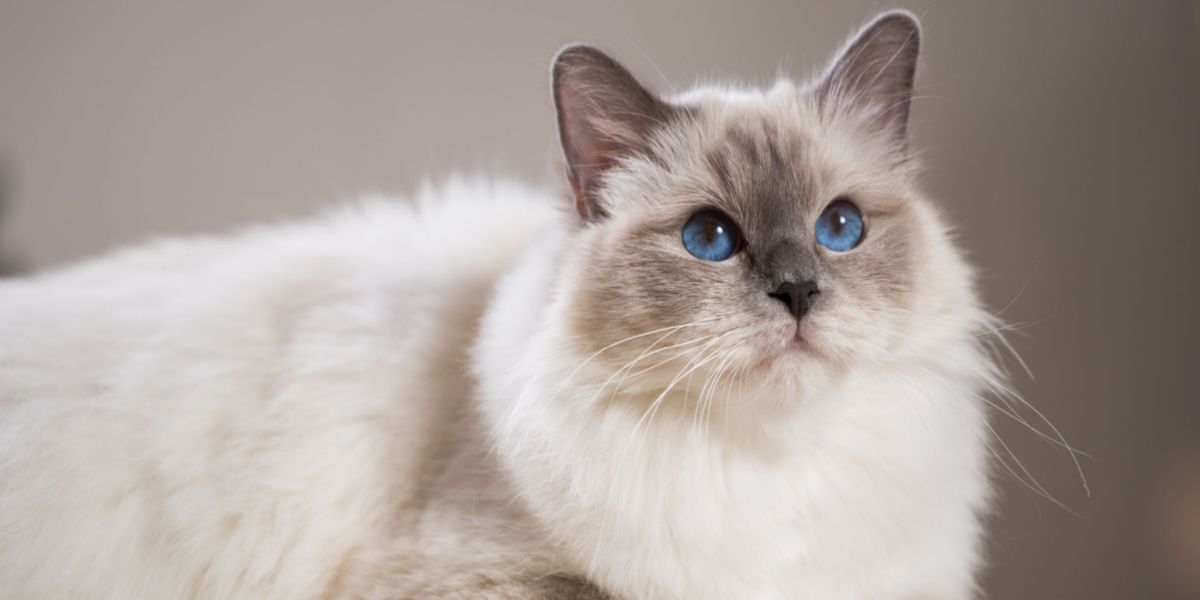
Certain medical conditions, including feline cognitive dysfunction, can affect cognition, problem-solving skills, and memory.
It has been found in some species that memory declines with age. Differing from these other animals, such as dogs, it has been shown that cats’ abilities to find food using their memory does not seem to decline as much with age.
However, older cats can suffer from medical conditions that can affect their brain cells, and therefore their cognition, problem-solving skills, and memory span. Feline cognitive dysfunction, which is in some ways similar to Alzheimer’s in humans, affects the cat’s brain and causes multiple symptoms.
These can include an apparent loss of memory, including forgetting where the food bowls are, changed interactions with bonded companions, and changes to sleep-wake cycles.
Also Read: Dementia In Cats: Symptoms, Diagnosis & Treatment
Cats and Memory: Summing Up
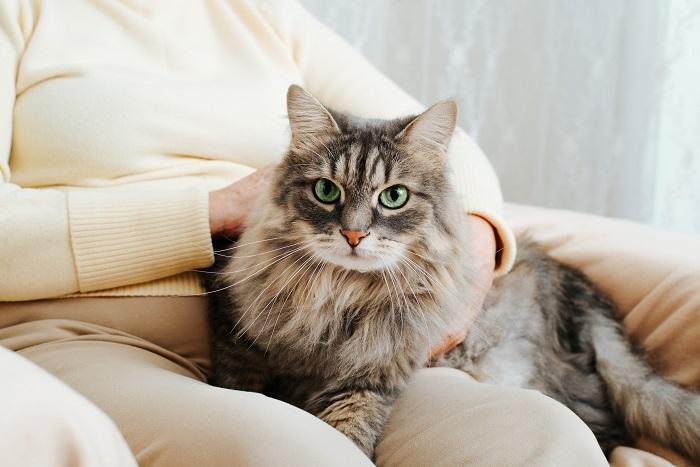
Cats tend to hang on to memories of the things that are most important to them, such as food, safety, and social interactions.
Cat owners will not be surprised to discover that cats possess both short-term and long-term memory capacity. These memories will depend on the cats’ experiences, vital needs, and emotions. Cat behavior might alter depending on these memories. Cats tend to hold memories of things important to them, such as food, safety, and social interactions.
Also Read: How Much Does It Cost To Own A Cat In 2023
Frequently Asked Questions
How long can a cat remember?
It has been shown that cats can hold long-term memories for years, although the exact length likely depends on the strength of the memory. Strong memories are usually formed through events attached to strong feelings, or those to do with something vital for life, such as food.
Can cats remember a person?
Yes, cats can remember people. Their ability to recognize faces is less than dogs' ability but it is present if they are someone important in their life (a caregiver, a family member), or if they have had a strong negative or positive experience with that person.
Do cats remember you for life?
Cats appear to have good long-term memory that doesn’t decline as much with age as some other species. The exact length of cats’ memories is unknown and may be affected by cognitive decline and other health issues.
Can cats miss their owners?
Cats can form strong social bonds and do remember human faces, although less well than dogs. Cats can suffer from separation anxiety, although it is unsure if this is linked to a specific person.
-
Fiset, S. & Dore, F. (2005) ‘Duration of cats’ (Felis catus) working memory for disappearing objects.’ Animal Cognition 9 pp. 62-70
-
McCune, S., Stevenson, J., Fretwell, L., Thompson, A. & Mills, D. (2008) ‘Ageing does not significantly affect performance in a spatial learning task in the domestic cat (Felis silvestrus catus)’ App An Behav Sci 112(3-4) pp.345-356
-
McVea, D. & Pearson, K. (2007) ‘Stepping of the forelegs over obstacles establishes long-lasting memories in cats.’ Current Biology 17(16) pp.621-623
-
Takagi, S., Tsuzuki, M., Chijiiwa, H., Arahori, M. & Watanabe, A. (2017) ‘Use of incidentally encoded memory from a single experience in cats.’ Behavioral Processes 141(3) pp. 267-272

